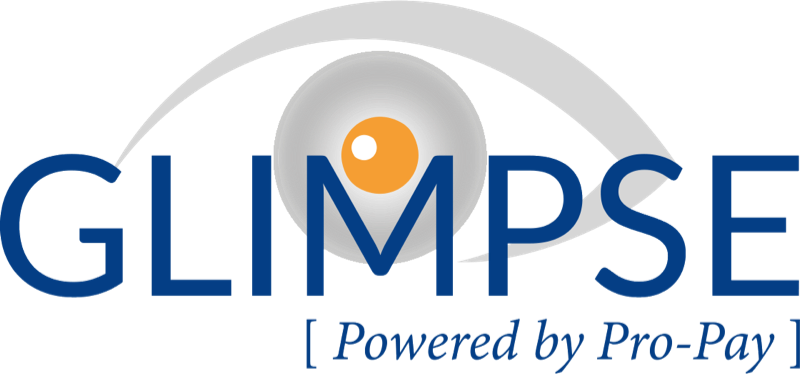Latest new measures in Belgian employment legislation 2023 and 2024

In this newsletter, we inform you about various recent and upcoming changes in Belgian employment legislation.
New training rules - update
Individual training right - Since the labour deal in 2022, an individual training right has been introduced in Belgium. The number of individual training days per full-time employee is at least 5 days per year starting from 2024 for companies as of 20 employees. A lower number can be established through a collective labour agreement (cla) at sector level, but the minimum is 2 training days per year. Companies with 10 to less than 20 employees must allocate at least 1 individual training day per year per full-time employee. For companies with fewer than 10 employees, there is no individual training right. Sectors may provide for fewer training days or establish a growth path, so always carefully review the rules at the level of your sector.
Annual training plan - Companies with at least 20 employees must prepare an annual training plan by 31 March each year. This plan provides employees with an overview of the training programs offered by the employer and includes the target groups for each of the various training sessions. This plan includes a list of both informal and formal training sessions. Employers can use their own template, but some sectors also provide for a template model. Of course, we can also provide you with a template if needed. You can find more information in our training newsletter.
Federal Learning Account - NEW - To assist employees in managing their individual and sectoral training rights, the federal government has developed the Federal Learning Account, which will enter into effect no later than 1 April 2024.
The Federal Learning Account is a digital application that provides employees with an overview of the total number of training rights, training credits, attended training days, completed training sessions, etc., accessible through www.mycareer.be (this website is still under construction).
The employer is obligated to update and record the data in the Federal Learning Account, which entails administrative responsibilities. Thus, the employer will need to inform employees about the existence of the Federal Learning Account, ensure that training sessions are consistently recorded, and verify general information.
We will certainly keep you informed about the details and future operation of the Federal Learning Account in an upcoming newsletter.
Resignation by the employee: always a notice period of maximum 13 weeks
In case of resignation by the employee, the notice period under the new Single Employment Status Act since 1 January 2014 was as a rule maximum 13 weeks. There were still a few exceptions to that rule. Due to transitional legislation, there were certain differences between the notice periods for employees who started working before and after 2014. Furthermore, the so-called "higher" and "highest" white-collar workers, in some cases, had to respect a notice period of more than 13 weeks when resigning.
The legislator has now eliminated the differences between the employees' notice periods: for employees who terminate their employment contract as from 28 October 2023 onwards, the notice period is maximum 13 weeks.
Note that the rules regarding notice periods for termination by the employer remain unchanged. For employees who started working for an employer before 2014, the notice period is still calculated in two parts.
Trusted person mandatory from 50 employees
The trusted person is an important point of contact for employees in case of issues related to psychosocial risks at work, including bullying, sexual harassment, aggression, stress, conflicts, etc.
The appointment of a trusted person in a company was not mandatory before, unless requested by all members representing the employees in the committee for prevention and protection at work.
Since 1 December 2023, appointing a trusted person is mandatory for companies with 50 or more employees. The number of employees is determined based on the number of calendar days on which each employee is registered in the personnel register (=N) over the past 4 quarters, divided by 365.
For companies with fewer than 50 employees, this remains mandatory only if there is a request from the union delegation or, if there is none, from the employees.
The trusted person must be part of the staff, except in certain specific cases where the company has fewer than 50 employees (and where the appointment is not mandatory).
Do not forget that every newly appointed trusted person must undergo at least five days of training within two years of their appointment.
Granting of purchasing power premium until 31 March 2024
Companies that have achieved good results during the crisis can grant a one-time purchasing power premium in the form of consumption vouchers.
Originally, it was stipulated that this purchasing power premium had to be granted no later than 31 December 2023, to qualify for social security and tax exemptions.
Some sectors have already decided to grant a purchasing power premium, but generally, the purchasing power premium is not a popular measure among companies. To encourage its allocation and provide companies with more time, it has been decided that the purchasing power premium can be granted until 31 March 2024.
Note that the decision to grant it must be made by 31 December 2023, and should be included in a collective or individual agreement concluded by 31 December 2023.
Expansion of flexi-jobs
The flexi-job system was introduced in 2015 to provide employees working at least 4/5th or retirees, with the opportunity to have additional, tax-friendly, sideline activities under strict conditions. Flexi-jobs were initially limited to specific sectors (JIC 302, 201, 312, 314, 118.03 (specific NACE code), 330 (specific NACE code), 223, 303.03, 119, 202, 202.01, and JIC 311).
These sectors will be expanded from 2024 as follows: JIC 112, JIC 118.03, JIC 118.07, JIC 118.08, JIC 118.09, JIC 118.10, JIC 118.11, JIC 118.12, JIC 118.14, JIC 118.21, JIC 118.22, JIC 132, JIC 140.01, JIC 140.05, JIC 144, JIC 145, JIC 200 (limited to NACE code 85.531 - main activity driving schools), JIC 320, and JIC 323. The event sector and sectors that employ lifeguards will also be able to use the flexi-job system under certain conditions.
The conditions for flexi-jobs are also becoming stricter. Starting next year, the flexi-salary will be aligned with the salary scale in the respective sectors (except for the hospitality sector). Furthermore, the special employer's contribution on the flexi-salary and the flexi-holiday pay will increase from 25% to 28%.
Non-retired flexi-jobbers are not allowed to earn more than 12,000 EUR per year: the part of the flexi-salary above this annual amount will be taxed as regular salary.
Several anti-abuse measures are also being introduced. It will no longer be possible to work at least 4/5th for one company and simultaneously work as a flexi-job employee for an affiliated company. Persons switching from full-time to a 4/5th employment will now be allowed to take up a flexi-job only after 6 months (3rd quarter after the switching).
New increase of home office allowance as from December 2023
Employees who work from home on a structural and regular basis can receive a lump-sum reimbursement from their employer. The maximum amount of this allowance increased on 1 December 2023 from 148.73 EUR per month to 151.70 EUR per month. This amount is a maximum amount and is exempt from social security contributions and taxes.
We would like to remind you that a written agreement must be drawn up for teleworkers, in principle at the latest when the employee starts teleworking.
It is also possible to grant other expense reimbursements for homework. You can find more information about this in our previous newsletter on homework.















